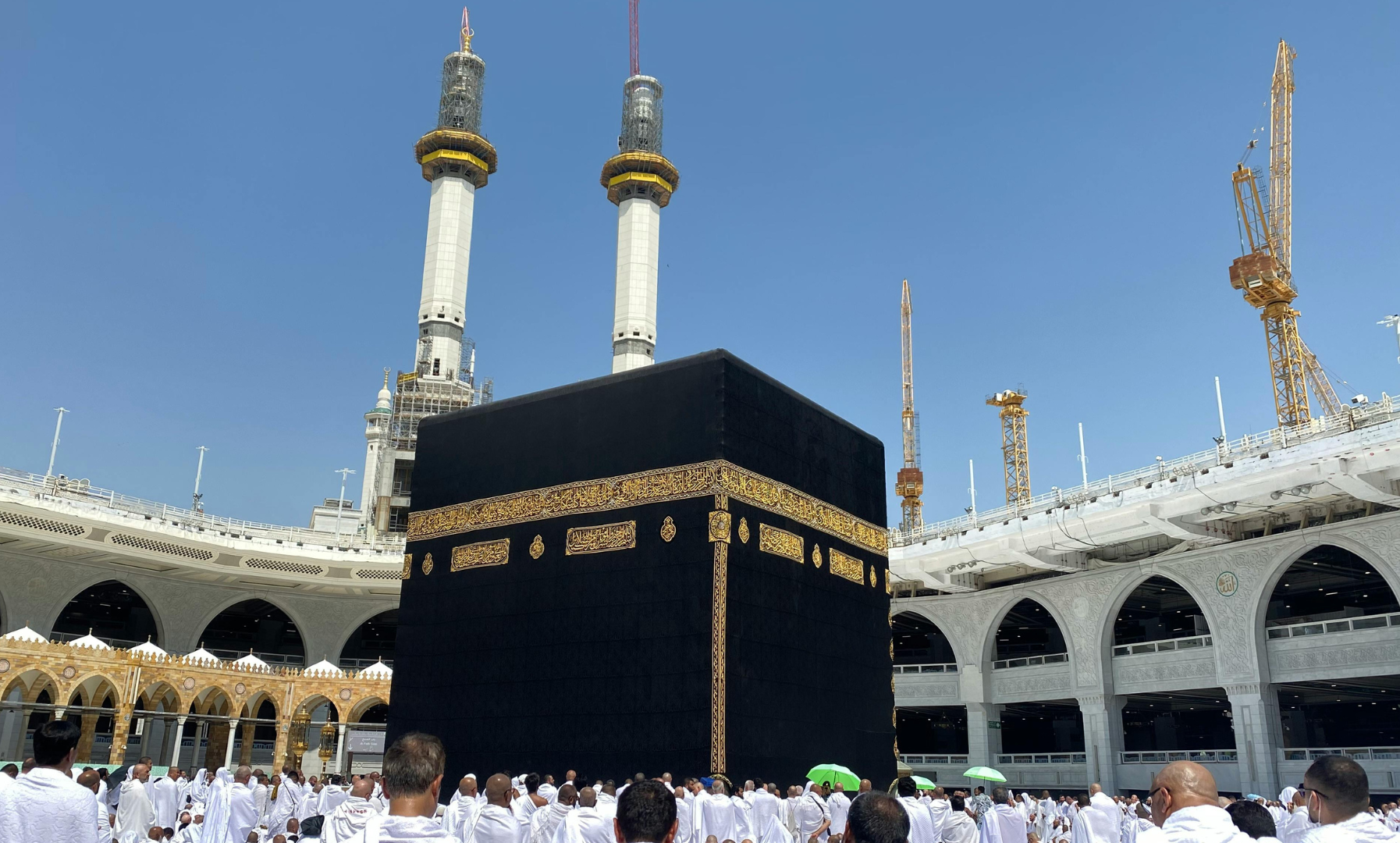
Carrying the Weight of Sacrifice
June 5, 2025
Hajj 2025 (or Hajj 1446 AH in Islamic year) is when over a million Muslims will descend on Mecca for pilgrimage from June 4 through June 9. Some may arrive earlier or stay longer, but they must be there during these specific dates. If they come any other time of the year, it is still beneficial, but it doesn’t count toward fulfilling one of the five pillars of Islam: Pilgrimage, Fasting, Giving Alms, Daily Prayers, and saying the Creed. The Hajj is to be performed by every able-bodied Muslim at least once in their lifetime.
This official Hajj is a series of journeys and events performed in specific places near Mecca. It was done in ways prescribed by Mohammed during a set number of days. The Hajj concludes with a three-day celebration observed not only by pilgrims in Mecca but also by Muslims worldwide.
The day before the celebrations begin—likely June 7 this year—is a day of preparation called the Day of Arafah. It is a special time of reflection and prayer. It is a day of remembering one’s shortcomings and sins and asking for forgiveness. Many Muslims believe that if they fast and pray on this day, the sins of the previous year and the sins of the coming year will be forgiven.
Those on the actual Hajj are not expected to fast because they have so much to do during the pilgrimage. Muslims elsewhere are expected to fast, pray, and listen for the voice of God.
Repeated Sacrifice
The next day marks Eid-al-Adha, or as the Afghans call it, Eid e Qurban—the “Feast of the Sacrifice.” This commemorates the time Abraham was willing to sacrifice his son, but at the last moment, God provided a ram.
Muslims who are wealthy will sacrifice more than one animal, while those who are not will perhaps share an animal with neighbors. In all cases, the meat will be shared with the family and the poor. It is the larger of the two annual Eids, and it is a time of visiting loved ones and giving gifts to family members and friends.
Interestingly, this time of sacrifice is practiced year after year. This is very much like the Jews who are still living under the Old Covenant. As Hebrews 9:22 (ESV) says, “Indeed, under the law, almost everything is purified with blood, and without the shedding of blood there is no forgiveness of sins.”
Tragically, Muslims don’t know about Hebrews 10. In the beginning verses, it says, “For since the law was but a shadow of the good things to come instead of the true form of these realities, it can never, by the same sacrifices that are continually offered every year, make perfect those who draw near.” Hebrews 10:4 adds, “For it is impossible for the blood of bulls and goats to take away sins.”
The Ultimate Sacrifice
As you engage in conversations with your Muslim friends this month, ask them about this big Eid, the Eid of Sacrifice—what it means and why they repeat it yearly. Gently introduce them to Hebrews 10:26b–28, “But as it is, he has appeared once for all at the end of the ages to put away sin by the sacrifice of himself. And just as it is appointed for man to die once, and after that comes judgment, so Christ, having been offered once to bear the sins of many, will appear a second time, not to deal with sin but to save those who are eagerly awaiting him.”
Muslims believe Jesus was a great prophet and that he is coming back. You don’t have to convince them of these things. What they don’t understand is that Jesus died and rose again to give them life.
We know that God loves us with an everlasting love, but Muslims do not know this amazing truth. This is why they struggle year after year, bearing their sin and shame, unable to be free of the weight and pain. Pray that your Muslim friends and neighbors would have ears to hear of the good news—that Jesus gave the ultimate sacrifice, died, and rose again, that they may have eternal life.
Additional Posts




